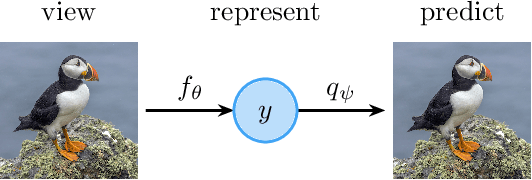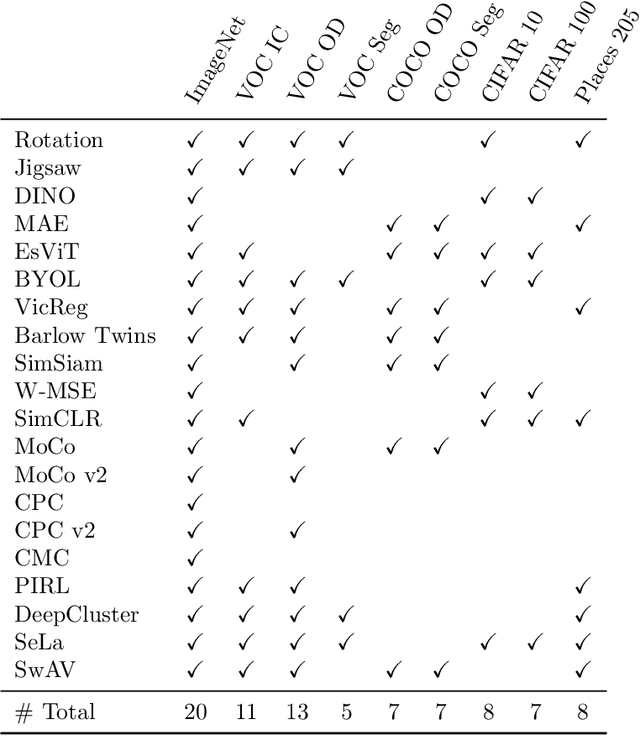Maike Behrendt
MaxPoolBERT: Enhancing BERT Classification via Layer- and Token-Wise Aggregation
May 21, 2025Abstract:The [CLS] token in BERT is commonly used as a fixed-length representation for classification tasks, yet prior work has shown that both other tokens and intermediate layers encode valuable contextual information. In this work, we propose MaxPoolBERT, a lightweight extension to BERT that refines the [CLS] representation by aggregating information across layers and tokens. Specifically, we explore three modifications: (i) max-pooling the [CLS] token across multiple layers, (ii) enabling the [CLS] token to attend over the entire final layer using an additional multi-head attention (MHA) layer, and (iii) combining max-pooling across the full sequence with MHA. Our approach enhances BERT's classification accuracy (especially on low-resource tasks) without requiring pre-training or significantly increasing model size. Experiments on the GLUE benchmark show that MaxPoolBERT consistently achieves a better performance on the standard BERT-base model.
Supporting Online Discussions: Integrating AI Into the adhocracy+ Participation Platform To Enhance Deliberation
Sep 12, 2024Abstract:Online spaces allow people to discuss important issues and make joint decisions, regardless of their location or time zone. However, without proper support and thoughtful design, these discussions often lack structure and politeness during the exchanges of opinions. Artificial intelligence (AI) represents an opportunity to support both participants and organizers of large-scale online participation processes. In this paper, we present an extension of adhocracy+, a large-scale open source participation platform, that provides two additional debate modules that are supported by AI to enhance the discussion quality and participant interaction.
The Power of LLM-Generated Synthetic Data for Stance Detection in Online Political Discussions
Jun 18, 2024Abstract:Stance detection holds great potential for enhancing the quality of online political discussions, as it has shown to be useful for summarizing discussions, detecting misinformation, and evaluating opinion distributions. Usually, transformer-based models are used directly for stance detection, which require large amounts of data. However, the broad range of debate questions in online political discussion creates a variety of possible scenarios that the model is faced with and thus makes data acquisition for model training difficult. In this work, we show how to leverage LLM-generated synthetic data to train and improve stance detection agents for online political discussions:(i) We generate synthetic data for specific debate questions by prompting a Mistral-7B model and show that fine-tuning with the generated synthetic data can substantially improve the performance of stance detection. (ii) We examine the impact of combining synthetic data with the most informative samples from an unlabelled dataset. First, we use the synthetic data to select the most informative samples, second, we combine both these samples and the synthetic data for fine-tuning. This approach reduces labelling effort and consistently surpasses the performance of the baseline model that is trained with fully labeled data. Overall, we show in comprehensive experiments that LLM-generated data greatly improves stance detection performance for online political discussions.
SQBC: Active Learning using LLM-Generated Synthetic Data for Stance Detection in Online Political Discussions
Apr 11, 2024Abstract:Stance detection is an important task for many applications that analyse or support online political discussions. Common approaches include fine-tuning transformer based models. However, these models require a large amount of labelled data, which might not be available. In this work, we present two different ways to leverage LLM-generated synthetic data to train and improve stance detection agents for online political discussions: first, we show that augmenting a small fine-tuning dataset with synthetic data can improve the performance of the stance detection model. Second, we propose a new active learning method called SQBC based on the "Query-by-Comittee" approach. The key idea is to use LLM-generated synthetic data as an oracle to identify the most informative unlabelled samples, that are selected for manual labelling. Comprehensive experiments show that both ideas can improve the stance detection performance. Curiously, we observed that fine-tuning on actively selected samples can exceed the performance of using the full dataset.
AQuA -- Combining Experts' and Non-Experts' Views To Assess Deliberation Quality in Online Discussions Using LLMs
Apr 04, 2024Abstract:Measuring the quality of contributions in political online discussions is crucial in deliberation research and computer science. Research has identified various indicators to assess online discussion quality, and with deep learning advancements, automating these measures has become feasible. While some studies focus on analyzing specific quality indicators, a comprehensive quality score incorporating various deliberative aspects is often preferred. In this work, we introduce AQuA, an additive score that calculates a unified deliberative quality score from multiple indices for each discussion post. Unlike other singular scores, AQuA preserves information on the deliberative aspects present in comments, enhancing model transparency. We develop adapter models for 20 deliberative indices, and calculate correlation coefficients between experts' annotations and the perceived deliberativeness by non-experts to weigh the individual indices into a single deliberative score. We demonstrate that the AQuA score can be computed easily from pre-trained adapters and aligns well with annotations on other datasets that have not be seen during training. The analysis of experts' vs. non-experts' annotations confirms theoretical findings in the social science literature.
A Survey on Self-Supervised Representation Learning
Aug 22, 2023



Abstract:Learning meaningful representations is at the heart of many tasks in the field of modern machine learning. Recently, a lot of methods were introduced that allow learning of image representations without supervision. These representations can then be used in downstream tasks like classification or object detection. The quality of these representations is close to supervised learning, while no labeled images are needed. This survey paper provides a comprehensive review of these methods in a unified notation, points out similarities and differences of these methods, and proposes a taxonomy which sets these methods in relation to each other. Furthermore, our survey summarizes the most-recent experimental results reported in the literature in form of a meta-study. Our survey is intended as a starting point for researchers and practitioners who want to dive into the field of representation learning.
 Add to Chrome
Add to Chrome Add to Firefox
Add to Firefox Add to Edge
Add to Edge